The 10 Hottest Networking Products Of 2023
The hottest networking products and services to hit the market in 2023 bridged the gap between networking and security. Also on the must-have list was SASE, cellular and cloud-based management tools.

2023 may go down as the year that networking and security, two once very siloed areas of IT, grew closer together. Enterprises and small businesses are faced with less resources at a time when they need as many hands on deck as possible. Cyberthreats and bad actors are seemingly lurking around every corner and connectivity has to be secure—it’s just table stakes, according to security professionals.
That’s why once-singularly focused networking vendors are getting into the security game with new features, such as HPE Aruba Networks, Cisco Systems,and Extreme Networks. At the same time, networking upstarts are baking security into the core of their offerings, like Networking-as-a-Service startup Nile and multi-cloud networking specialist Prosimo.
Also topping the list of must-haves this year was SD-WAN, cellular and cloud management tools for future-minded businesses that are embracing new forms of connectivity to get the job done.
With many options on the market to choose from this year, here are 10 of the hottest networking products of 2023.
• Celona
• Cisco Systems
• Cradlepoint
• EnGenius
• Extreme Networks
• HPE Aruba Networking
• Nile
• Opengear
• Prosimo
• Versa Networks
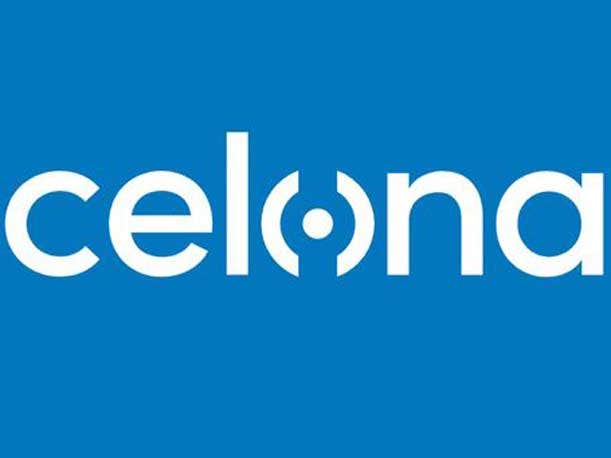
Celona Private Indoor/Outdoor 5G Access Points
Private wireless provider Celona in February debuted its portfolio of new private 5G offerings for the enterprise, including a suite of indoor and outdoor 5G New Radio (NR) products for U.S. and global markets. The three access points include the indoor AP-20, which offers both 4G and 5G connectivity concurrently in the Citizens Broadband Radio Service (CBRS) band, solving the problem that businesses are running into because many cellular technologies are not backward-compatible, according to the startup. Celona also introduced the 5G-only indoor AP-22 and the industrial integrated 5G outdoor AP-21.
The APs are available through the Campbell, Calif.-based company’s channel partners. All components of Celona’s 5G private wireless platform are sold on a single Software-as-a-Service license, with three- and five-year subscription options.

Cisco Networking Cloud
Following in the footsteps of its Security Cloud platform revealed in 2022, the tech giant debuted its Cisco Networking Cloud strategy in June.
Cisco Networking Cloud isn’t a product but instead a platform approach for managing the entire on-premises and cloud-based networking environment for businesses. The company’s vision for Cisco Networking Cloud is to make managing networks easier by converging its disparate offerings over time to create a unified network management platform that works on-premises and in the cloud.
The company has since been hard at work adding new features to Cisco Networking Cloud, including single sign-on to simplify access across Cisco networking platforms, an API key exchange/repository that when linked with single sign-on can make it easier for disparate Cisco networking platforms to connect and exchange data through automation, cross-platform navigation and a common user interface across Cisco networking platforms, according to the San Jose, Calif.-based company.
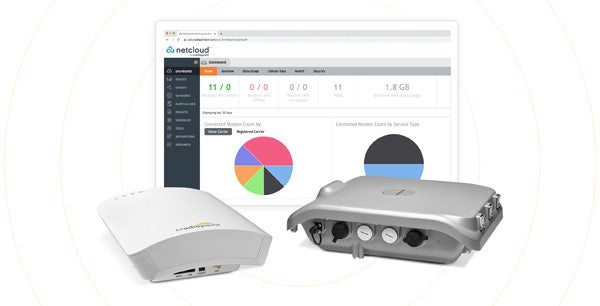
Cradlepoint NetCloud Private Networks
Wireless specialist Cradlepoint in January unveiled NetCloud Private Networks, a fully packaged private cellular network offering that uses existing network infrastructure investments to simplify the complexities of private cellular network ownership that have been a roadblock to broader enterprise adoption of cellular technologies such as 5G.
NetCloud Private Networks targets lean enterprise IT environments that are looking for a private network to complement, or in some cases, replace their Wi-Fi in locations where their network isn’t secure enough for specific applications, like those in health care, education or smart city settings. NetCloud Private Networks is packaged for simple deployment so that partners and end customers don’t have to cobble together products from a number of vendors on their own, according to the Boise, Idaho-based company.
Cradlepoint’s NetCloud Private Networks only exists thanks to an elite group of channel partners that helped the wireless specialist develop its private networking offering, Cradlepoint’s channel executives told CRN.
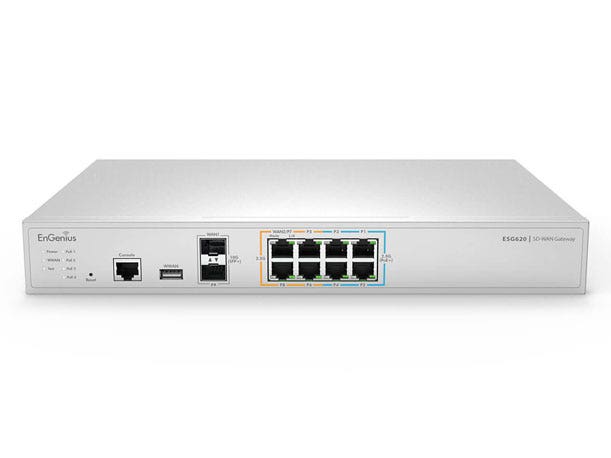
EnGenius ESG620 Gateway for SD-WAN
Connectivity provider EnGenius this month unveiled the EnGenius ESG620 Gateway as the company expands its SD-WAN Gateway portfolio. The EnGenius ESG620 Gateway is a rack-mountable offering that network engineers can use for effortless setup, high-performance and enterprise-level security solutions, the Costa Mesa, Calif.-based company said.
The EnGenius ESG620 Gateway offers features such as Auto-VPN with healing, Auto-NAT traversal for multi-peer SD-WAN setup, and EnGenius’ new client VPN feature (SecuPoint) for enhanced security and simplified business connectivity. The new offering can also be managed via the cloud, rendering it compatible with various environments, and requires no licensing or subscription fees, according to EnGenius.
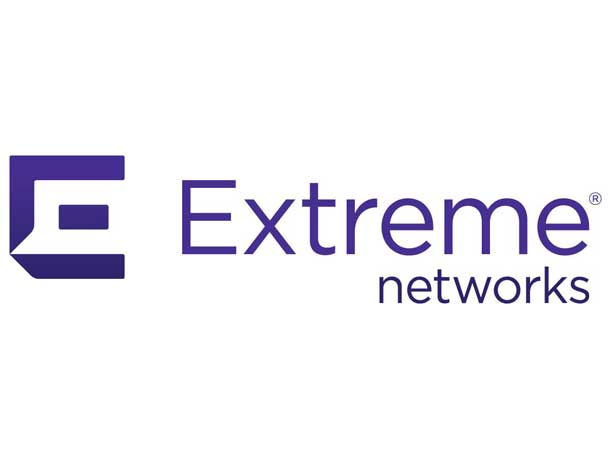
Extreme Networks ZTNA
Revealed in November, ExtremeCloud Universal Zero Trust Network Access (ZTNA) is an offering that combines network, application and device security all within a single tool. Cloud-based ExtremeCloud Universal ZTNA brings together network access control, access point and switch security to help remove complexity for IT teams when it comes to managing and securing user access across the campus, branch, remote sites and anywhere. Universal ZTNA is expected to be generally available in early 2024, according to the Morrisville, N.C.-based company.
The combination of the networking and security features in one tool is something competitors don’t offer today, Extreme CEO Ed Meyercord told CRN in November.
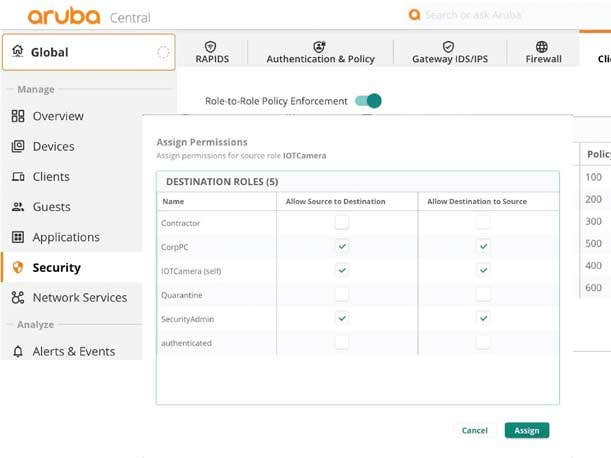
HPE Aruba Central Network Management Platform
Networking heavyweight Aruba’s flagship network management platform, HPE Aruba Networking Central, was upgraded in April and has remained firmly one of the hottest networking products of the year.
The latest generation of Aruba Central includes an operator-centric design with a simplified user experience for more people across all skill levels, a “time-travel” feature, which Aruba is calling the first in the industry that gives contextually correlated “point-in-time” views of the network for recovery in minutes to a specific point, and multilayer physical and logical “sunburst” topology views for the viewing of large, complex networks. It also includes intelligent assurance indicators for device health and customer experience, AI-powered full-stack insight for enhanced root cause analysis, impact assessment, and precise recommendations and device-agnostic day zero and day one workflows with API support to automate network configurations at scale, according to the company.
The updated HPE Aruba Networking Central takes advantage of the AI and the data lake that supports the AI that comes from Aruba customers to help enterprises better automate their workflows, view relevant data and manage the network, the company said. Santa Clara, Calif.-based HPE Aruba said it believes it has the most relevant, integrated data lakes for networks in the industry.
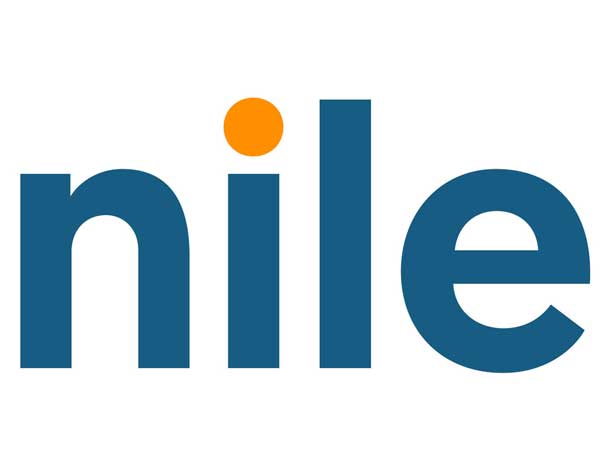
Nile NaaS
With security at the forefront of every enterprises’ mind, Networking-as-a-Service startup Nile in March infused its core NaaS offering with three new zero trust security capabilities.
The security features include Zero Trust Access, which unifies access for all wired and wireless devices while employing identity-based authentication and authorization to the network. The feature ensures that every user, device or IoT endpoint is authenticated and authorized before providing any access to a Nile network. The next feature, Zero Trust Isolation, removes malware proliferation by isolating every user and device from every other user and device on a Nile network. From there, security policies can be centrally managed and enforced at an organization’s firewall. The third is Zero Trust Network, a feature ensures that every element within the Nile network is authenticated through Mutual Trust Access Control (MTAC). Communication between all wired and wireless devices across the network is encrypted and integrated. In addition, wireless intrusion detection systems (WIDS) and wireless intrusion protection systems (WIPS) continuously monitor for unauthorized or malicious wireless activity, according to San Jose, Calif.-based Nile.
The upstart in August raised $175 million in a Series C funding round co-led by March Capital and Sanabil Investments with participation from solutions by stc, Prosperity7, Liberty Global Ventures, 8VC, Geodesic Capital, FirstU Capital and Valor Equity Partners.
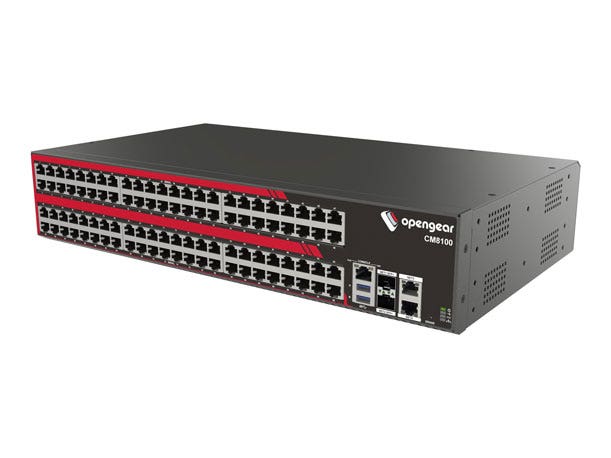
Opengear CM8196-10G, CM8148-10G Console Managers
Opengear, a provider of network monitoring, data center and IT infrastructure management, in February expanded on its CM8100 product family, the company’s console manager for data centers and enterprise networks that are available in 1-GbE and 10-GbE models.
The two recently introduced 10-GbE models are the CM8196-10G and CM8148-10G. The latest offerings give businesses the ability to deploy Smart Out-of-Band management at scale while reducing integration efforts and maintenance overhead. Like the rest of the CM8100 family, the new products ensure resilient remote access with enhanced security and automation, according to the Piscataway, N.J.-based company.
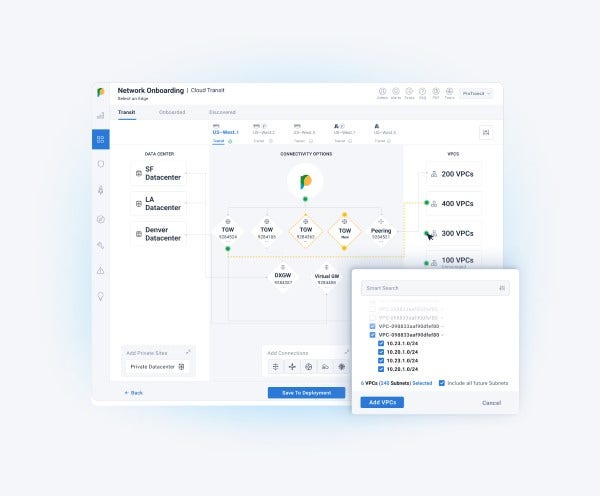
Prosimo Cloud Networking Suite
Multi-cloud networking disrupter Prosimo does 100 percent of its business through its ecosystem of partners. The Santa Clara, Calif.-based startup in April introduced a cloud-based networking product suite of three new tools to help enterprises design, build, troubleshoot and manage single and multi-cloud networking environments.
Visual Transit Builder gives users a drag-and-drop option that simplifies the process for cloud network architects to on-board networks, applications and services across any cloud using the same visual builder. The second tool, Cloud Tracer, speeds up troubleshooting and time to resolution for enterprises. It helps users track network topology and flow tracing across different regions and data centers so enterprises can anticipate issues in real time across networking, security and applications. To help reduce human error, the third tool, Adaptive Service Insertion, simplifies compliance in the cloud. Enterprises can define policies to insert stateful services, including firewalls in the path for networks and applications, according to the company.
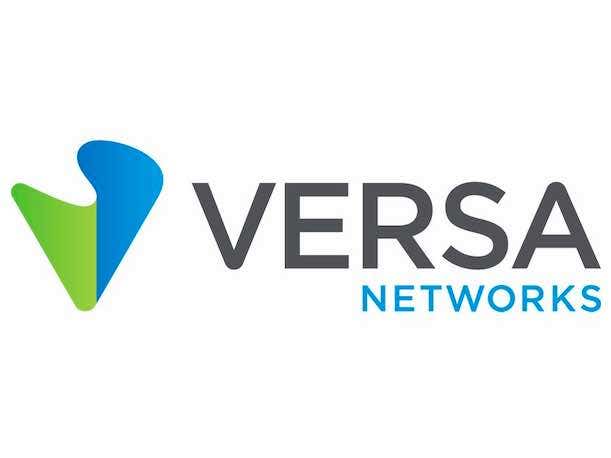
Versa Networks’ VersaAI
SD-WAN-turned Secure Access Service Edge (SASE) specialist Versa Networks’ VersaAI tool lets enterprises use artificial intelligence and machine learning identify malware. The company’s unified SASE platform integrates a data set from across the entire infrastructure—from the WAN edge to cloud, sampus, remote locations, users and devices—into a unified data lake. VersaAI, according to the company, taps into this data lake to extract AI/ML insight.
In August, the Santa Clara, Calif.-based company revealed a set of enhancements to VersaAI aimed at embedding generative AI capabilities into the tool. The security-focused tools included AI/ML-Enhanced Malware Detection for Advanced Threat Protection, AI-powered Adaptive Microsegmentation, Generative AI Security and AI-Assisted DLP (Limited Access).